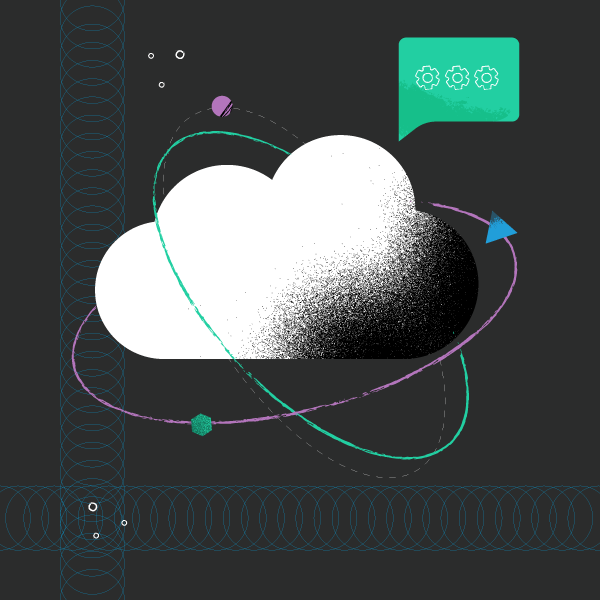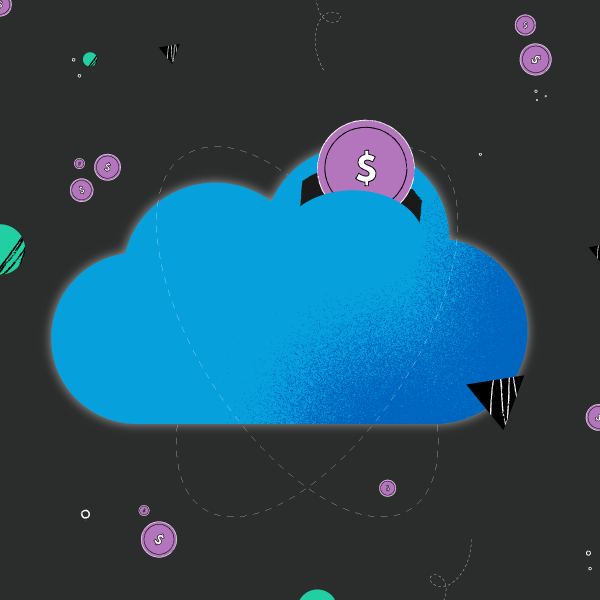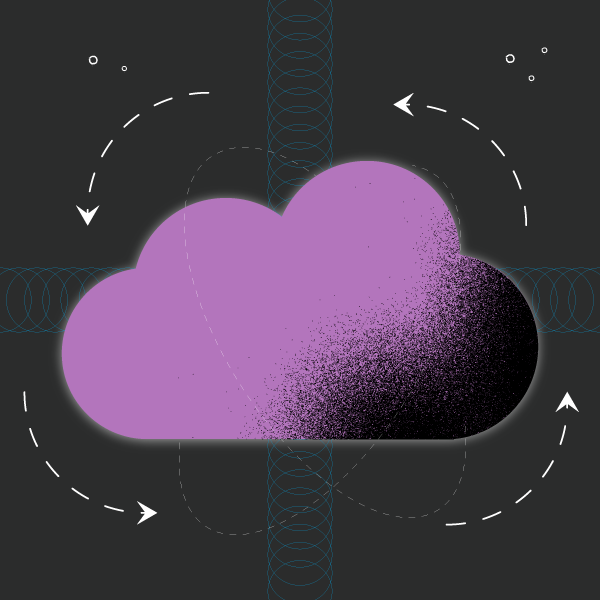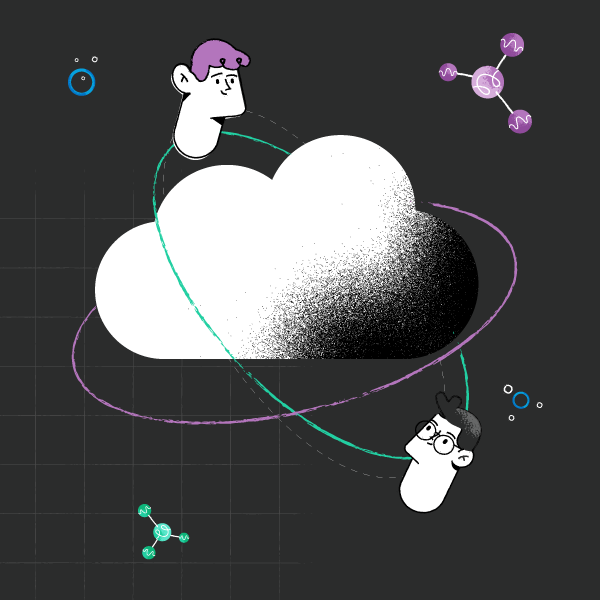This site uses cookies for analytical purposes.
Reap the Benefits of Cloud Computing with Our Expert Help
There are many benefits of cloud computing that your business can take advantage of, including:
Reach Out to Our Cloud Engineering Experts
Whether you're just starting to explore the cloud, are in the middle of cloud migration process, or you want to improve your cloud based solutions, we can help. Our team of cloud engineering experts has a wealth of experience in all aspects of cloud computing, from strategy and planning to migration and app development. We'll work with you to understand your specific needs and objectives, and then develop a tailor-made solution that will help you achieve your goals.

Wojciech Gębiś
Project Lead & DevOps Engineer

Wojciech Marusarz
Senior Software Engineer
Our Expertise in Cloud Application Development Services
We provide a full range of cloud application development services, from strategy and planning to migration and app development. Our team has experience with all major cloud platforms, including AWS, Microsoft Azure, Google Cloud Platform, and more. We also have a deep understanding of how to optimize applications for maximum performance and scalability in the cloud. We offer a full range of cloud development services, including:
-

Cloud Migration
Migrating your legacy applications and workloads to the cloud doesn't have to be a daunting task. Our team of cloud engineers can help you plan and execute a successful cloud migration project, ensuring that your IT infrastructure is migrated with minimal disruption.
-

Cloud Native App Development
Are you looking to build new cloud-native applications? Our team can help you design and build an scalable, reliable, and secure application that is optimized for the cloud environment. We have experience with cloud application development for all major cloud providers, including AWS, Azure, Google Cloud Platform, and more.
-

Cloud Architecture
Cloud architecture services cover the design of individual cloud components, such as servers, storage, or networking, or the design of an entire cloud infrastructure. Our team of cloud architects can help you design a robust and scalable cloud architecture that will meet the needs of your business today and in the future.
-

Cloud Integration Services
Our integration services cover the process of connecting your cloud-based applications to other systems, whether it's on-premises, private cloud, multicloud, or hybrid cloud. Our team of experts can help you with tasks such as data synchronization, software integration, cloud deployment, identity and access management, and more.
-

Cloud Strategy and Roadmap Development
Cloud strategy and roadmap development services will help you plan your transition to the cloud, taking into account your business objectives. Our team of cloud experts can assist you in dedicated cloud training and the development of a custom cloud roadmap and roadmap that will fit your unique needs.
-

Cloud Infrastructure Management
Our CloudOps services can help you optimize and manage your cloud computing solutions, ensuring that they are always running at peak performance. Our team can help you with tasks such as cloud resource provisioning, monitoring, scaling, and cloud cost optimization.
How Can We Help - Our Cloud Services
Private, Public, Multicloud, and Hybrid Cloud Services
The cloud has become the default choice for organizations of all sizes that are looking to improve agility, lower costs, and scale quickly. However, with so many different cloud vendors and options available, it can be challenging to know where to start. We will help you choose the best option and provide cloud services for selected platforms.
Cloud Optimization
One of the main benefits of moving to the cloud is the ability to scale your applications and services on demand. However, this doesn't mean that your application will automatically be optimized for cost-effectiveness and performance. Our team of cloud developers and DevOps experts can help help you reduce your overall cloud spending and optimize it for maximum performance.
Cloud Consulting Services
If you're looking for external expert support, cloud consulting services are the ideal solution. We deliver consulting services for all stages of your cloud project. Our team can provide you with expert guidance and support on all aspects of your cloud project, from strategy and planning to implementation and ongoing management.
Sign up for a cloud consultation with our expert
We'll be happy to help you figure out the best way to take advantage of cloud computing.
Partnering With the Biggest Cloud Providers
Why Hire nexocode as a Cloud App Development Company?
As a cloud application development company, we believe that the future is in the cloud. We want to be your go-to partner for custom cloud app development, which is why we only use the best technology available from private, public, and hybrid cloud services. This way, you can trust that you're always getting business-driving results.
-

Cloud Expertise
The nexocode team has years of experience in developing, deploying, and managing cloud-based applications. Our experts are focused on helping you take advantage of the latest cloud technology.
-

End-to-End Solution Provider
Our services support the complete lifecycle of your digital transformation requirements, from initial strategy consultations to developing cloud solutions at scale and improving production infrastructure.
-

Proven Track Record
Our portfolio covers multiple cloud application development projects across various industries. Working with a team of experienced cloud engineers will help you navigate the opportunities and challenges of cloud apps.
-

Agile Approach
We work in a highly agile manner, which means that we can be flexible and adjust to your needs as they change. Our goal is to get you results as quickly and efficiently as possible.
Cloud Application Development Services - Your Questions Answered
- What is cloud computing?
-
Cloud computing is a model for enabling ubiquitous, convenient, on-demand network access to a shared pool of configurable computing resources (e.g., networks, servers, storage, applications, and services). This means that you can access your files and applications from any device with an internet connection.
- What are the benefits of cloud computing?
-
Cloud computing has many benefits, including the following:
- Reduced Costs: You only pay for what you use and you can scale up or down as needed.
- Increased Agility: You can deploy new applications and services quickly and easily.
- Enhanced Security: Cloud providers have security measures in place to protect your data.
- Improved Reliability: Cloud providers have redundancies in place to provide reliable service.
- Increased Scalability: When on cloud you can scale your infrastructure quickly as your business grows.
- What are the different cloud service deployment options?
-
There are four main cloud deployment types: private, public, hybrid, and multicloud.
- Private cloud: A private cloud is a single-tenant environment that is dedicated to your organization, it can run on-premise (physical infrastructure) or can be hosted by a third-party service provider. This means that you have complete control over the data and applications in the cloud.
- Public cloud: A public cloud is a multitenant environment that is shared by many organizations. This means that you do not have complete control over the data and applications in the cloud.
- Hybrid cloud: A hybrid cloud is a combination of a private and public cloud. The hybrid cloud approach allows data and apps to move between the two environments.
- Multicloud: Multicloud is a combination of two or more cloud services from different providers. This means that you can use the best features of each cloud service to create a custom solution for your organization.
- What is cloud application development?
-
Cloud application development is the process of designing, creating, testing, and deploying applications that run on a cloud computing platform. This can include public clouds, private clouds, or hybrid clouds.
- What are the main types of cloud computing as-a-service options?
-
The three main types of cloud computing as-a-service options are infrastructure, platform, and software. Each one covers a different level of management for you:
- IaaS (Infrastructure as a Service): IaaS includes all of the infrastructure components that are needed to run your applications, such as servers, storage, and networking.
- PaaS (Platform as a Service): PaaS provides a platform for you to develop and deploy your applications. This can include tools for development, testing, and deployment.
- SaaS (Software as a Service): SaaS is a complete application that is offered to users over the internet. This means that you do not need to install or manage any software on your own.
- What is cloud consulting?
-
Cloud consulting is the process of working with a cloud consultancy to design, migrate, and manage cloud-based applications and systems. It can involve planning, architectural design, implementation, and ongoing management and support. Cloud consultants can help you choose the right cloud platform and services for your needs, leverage cloud features, and they can assist with the migration process to ensure a smooth transition and a successful cloud journey.
- Can you help me migrate my existing applications to the cloud?
-
Yes, we offer a full range of cloud migration services. We will work with you to assess your current application portfolio, identify which applications are a good fit for the cloud, and develop a migration plan that meets your business needs.
- What is your approach to cloud application development?
-
Our approach to cloud application development is highly agile and focused on getting you results as quickly and efficiently as possible. We work closely with you to understand your business needs and objectives, and then we develop a custom solution that is tailored to your specific needs.
- What is cloud application development?
-
Cloud application development is the process of designing, creating, testing, and deploying applications that run on a cloud computing platform. This can include public clouds, private clouds, or hybrid clouds.
- Do you offer any training or workshops?
-
Yes, we offer a wide range of training and workshops to help you get the most out of your cloud applications. Our training programs are designed to help you quickly learn the basics, and then build on that knowledge with more advanced topics. We also offer workshops that focus on specific features or applications, such as cloud-based machine learning or cloud-based analytics.
Bring your business to the next level with cloud computing services from nexocode. nexocode has a team of experts who can assess your business needs and develop a custom cloud solution that meets your specific goals. Contact us today to learn more about how we can help you take advantage of cloud environments.








